Iran’s president, Hassan Rouhani, has asked the US to stop making “excessive demands” in the negotiations over the country’s nuclear programme, saying Tehran had already made enough compromises to reach a permanent settlement with the west when the two sides meet next week.
Rouhani told his cabinet on Wednesday that the Iranian team would not retreat from the “people’s rights” when it travelled to Vienna to meet with diplomats from six major powers for what many see as a make-or-break moment.
“Iran has made its utmost efforts and made the necessary adjustments to its demands and we hope that all the P5+1 countries, particularly the US, which occasionally seeks excessive demands in the nuclear talks, will understand the circumstances,” Rouhani said, according to the state-run Press TV.
Since sealing an interim nuclear agreement last year, Iran and the US, France, Germany, China, Russia and Britain – the group known as P5+1 – have held intensive talks aimed at finding a final deal to end the decades-long dispute over Iran’s nuclear ambitions. Both sides have set 24 November as a self-imposed deadline for the talks and despite big differences, they are hoping to reach agreement by then.
The US secretary of state, John Kerry, met Iran’s foreign minister, Mohammad Javad Zarif, and the EU foreign affairs chief Catherine Ashton in the Omani capital, Muscat, earlier this week. It was not clear how those talks went and there was no indication of a breakthrough.
Rouhani told his ministers that countries looking for excuses to prevent Iran making further nuclear advances would fail to do so. “Our nation will never give up the path of development and its rights,” the Iranian president said, adding that he hoped for an agreement that would benefit Iran and other countries.
Iran has been adamant that it would not allow any agreement to prevent it obtaining nuclear technology permitted by the non-proliferation treaty (NPT). But Iran and the west have different interpretations of what type of advances are permitted under the NPT, especially over enrichment capacity.
On Tuesday, Russia sealed a deal with Iran to build at least two more nuclear reactors in Bushehr, on the Gulf. This is already home to a Russian-built reactor that is the country’s only nuclear power station. The agreement was signed in Moscow between the head of Iran’s Atomic Energy Organisation, Ali Akbar Salehi, and Sergey Kirienko of Russia’s State Atomic Energy Corporation (Rosatom).
Salehi described the agreement, which encompasses the construction of six more reactors in the future, as a turning point in relations between Tehran and Moscow.
The outcome of the Vienna talks will have direct consequences at home for Rouhani. He owes his victory in last year’s presidential elections to promises of ending the nuclear crisis, which would in turn lead to the gradual lifting of sanctions. Despite the interim agreement, the bulk of the sanctions regime remains intact and Tehran has severe problems selling oil, its primary export.
Rouhani said the midterm elections in the US, which gave the Republicans outright control over the Senate, was a domestic issue for the Americans and should not interfere with talks. “It is none of our business that one of the countries of the P5+1 has internal problems and have lost or gain in an election. Countries have to solve their internal problems within themselves.“
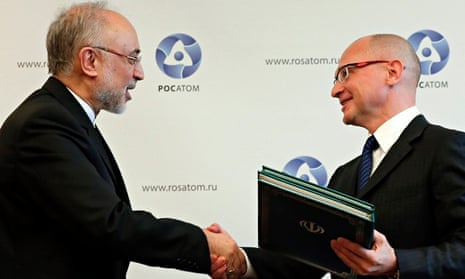
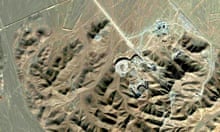
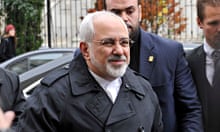
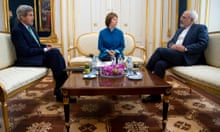
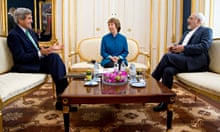
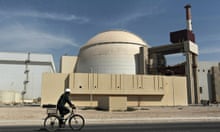
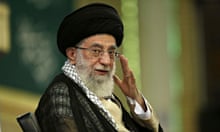
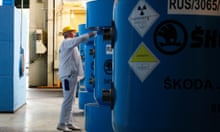
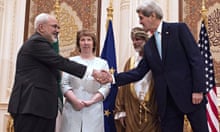
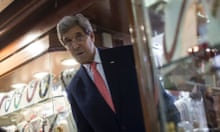
Comments (…)
Sign in or create your Guardian account to join the discussion